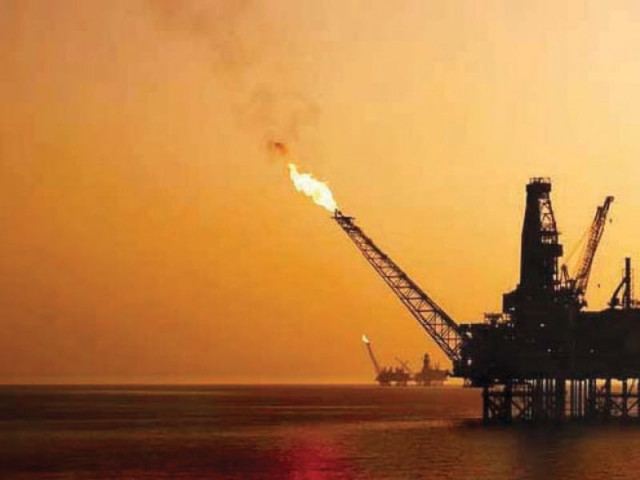Oil and gas: Cracks appear in regulator’s shield for consumers
Toothless regulator fails to protect people from business lobbies.

Regulators are commonly perceived to have been shielding the interest of consumers by working independently. In the case of energy production, they work for giving a boost to the sector and undertake many initiatives in this regard.
However, in Pakistan the situation looks different as appointments of the heads and members of a regulator are made on political considerations and backed by business tycoons. Such interference makes the regulator toothless and puts consumers at the mercy of powerful lobbies.
During the tenure of the previous Pakistan Peoples Party government, Tauqeer Sadiq was hired as head of the Oil and Gas Regulatory Authority (Ogra), but later his appointment was declared illegal by the court. In this case, two former prime ministers are facing charges of making the appointment in violation of rules.
Sadiq was accused of increasing the Unaccounted-for-Gas (UFG) ceiling for gas distribution companies from 5% to 7%, which burdened consumers with an extra Rs44 billion over three years and increased revenues of the utilities.

Though after one month, the ceiling was reversed to 5%, but the utilities got a stay order from courts. Later, Ogra succeeded in getting the stay order vacated and set UFG benchmark at 4.5% for 2013-14.
However, the situation is not different under the present government as people are being hired on political grounds with the support of business lobbies.
Amir Naseem, an employee of Sui Northern Gas Pipelines Limited (SNGPL), has been inducted into Ogra as member gas in violation of rules. Under the rules, he could not be hired for two associated posts because of clash of interest.
Insiders say he has the backing of a business tycoon, who is a major shareholder in the gas utility. After taking charge, he has changed Ogra’s stance and started promoting the interest of gas utilities in marked contrast to the authority’s role which is to protect the interest of consumers.
He has sought policy guidelines from the Ministry of Petroleum on passing the burden of higher system losses on to consumers.
The former Ogra chairman was also facing the same charge of burdening consumers with higher system losses. When approached for comments, the member gas refused to say anything over the matter.
Investments at stake
A senior government official commented that such illegal appointments would further strengthen certain lobbies and put consumers at a disadvantage in the face of an ineffective and inefficient regulator.
The violation of hiring rules will also put investments in the oil and gas sector in jeopardy. Many countries have already been pressing the government to come up with an improved regulatory framework to woo investors and safeguard the interest of consumers.
The United States and multilateral donors also suggest that Pakistan should grant autonomy to the oil and gas industry regulator and avoid political interference.
Earlier, the involvement of politics in regulatory affairs had led to a loss of millions of dollars in investment. The wellhead gas price notified by Ogra for Dewan Petroleum was challenged by the Ministry of Petroleum in the Supreme Court.
The National Accountability Bureau (NAB) also took up the issue of increase in the price by $1 per million British thermal units (mmbtu). This prompted the company to stop making more investment.
In another instance, the Economic Coordination Committee (ECC) recently increased the wellhead price of Sara and Suri fields from $1.8 to $4.2 per mmbtu, causing a loss of billions of rupees on account of Gas Development Surcharge (GDS) to provinces, but the investigators were keeping mum.
Study
According to an energy expert, the regulator is unable to work properly after interference in its affairs and will start supporting the lobbies that are expected to buy shares in gas companies under the privatisation programme.
In this poor regulatory regime, the government may find it hard to sell shares in state companies to the private sector.
“A study should be undertaken to improve the regulatory mechanism in order to shield the interest of consumers,” the expert suggested and said different gas prices were prevailing in the country, underscoring the need for changes to pricing policies before privatising energy companies.
The government should split the transmission and distribution system of gas companies and create small distribution firms. It should have control over the transmission system and the distribution role should be handed over to private companies to control and reduce losses.
As the country is pushing ahead with gas import projects such as liquefied natural gas (LNG) import, it should have control over the transmission system considering it a strategic asset.
Owing to the weak regulator, oil marketing companies (OMCs) have also been minting millions of rupees in the shape of inland freight equalisation margin (IFEM). Powerful lobbies back officials of the oil department in Ogra and in some cases OMCs have made billions on account of IFEM with the cooperation of Ogra officials. This was also the outcome of appointments made in the regulator on the basis of favouritism and political considerations.
Published in The Express Tribune, June 30th, 2014.
Like Business on Facebook, follow @TribuneBiz on Twitter to stay informed and join in the conversation.



















COMMENTS
Comments are moderated and generally will be posted if they are on-topic and not abusive.
For more information, please see our Comments FAQ